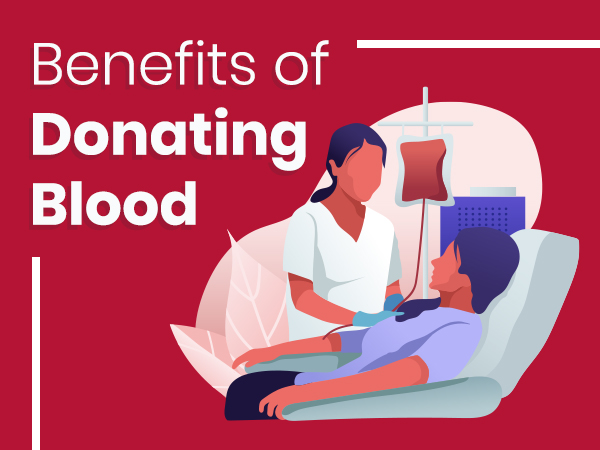The benefits of giving blood
1. Giving blood can reveal potential health problems
While it isn’t the same thing as a trip to the doctor, donating
blood can be another way to keep an eye on your cardiovascular
health. You’ll receive a mini-physical prior to the blood draw, in
which someone will check your pulse, blood pressure, body
temperature, hemoglobin and more. This can sometimes shed light on
issues you didn’t even know about.
If your blood is too low in iron, the clinic will tell you and won’t
draw your blood.They will also inform you of any other blood issues
they notice or if anything seems unusual. An occasional check up on
your blood quality could be the key to spotting a health issue
before it becomes life-threatening.
2. Giving blood may lower your risk of suffering a heart attack
Donating blood at least once a year could reduce your risk of a heart attack by 88 percent, according to a study conducted by the American Journal of Epidemiology. Healthcare experts explain that high levels of iron in the blood constrict your blood vessels and create more risk of a heart attack. Depleting those extra iron deposits by donating blood gives your vessels more room to operate.
3. Giving blood may reduce your risk of developing cancer
In an average, completely healthy person, the link between giving
blood and decreased cancer risk is slim. But research does support a
reduced risk of cancer for blood donors with different maladies, one
of which is hemochromatosis
Phlebotomy (the process of drawing blood) was found to be an
iron-reduction method that is associated with lower cancer risk and
mortality, according to a study published by the Journal of the
National Cancer Institute. The study focused on patients affected by
peripheral arterial disease (PAD), which is described as a common
circulatory problem. PAD patients who regularly donated blood had a
lower risk of developing cancer than those who did not.
4. Giving blood can help your liver stay healthy
Another danger of iron overload is the health of your liver. In
recent years, nonalcoholic fatty liver disease (NAFLD), the hepatic
expression of metabolic syndrome, has reached epidemic proportions.
Research has linked too much iron with NAFLD, Hepatitis C and other
liver diseases and infections. Though there are many other factors
involved in these problems, donating blood can help relieve some of
those iron stores and avoid extra issues in your liver.
5. Giving blood can help your mental state
While there are several physical benefits to donating blood, the
most powerful health benefit is arguably in the psychological realm.
Donating blood means that someone (or multiple people) somewhere
will be getting the help they desperately need.
Donating blood, especially on a regular basis, can be similar to
volunteer work. You give of your time (and your literal blood) to
help strangers in need. If you go to specific blood donation
location each time, you’ll get to know some of the staff who are
also dedicating themselves to the cause of saving lives.
This kind of regular, altruistic interaction has major psychological
benefits. Getting out of your usual environment to do something good
for someone else is stimulating in the best kind of way.
Volunteering has been shown to have positive effects on happiness.
In people over 65-years-old, volunteering also reduces the risk of
depression and loneliness.
Experts believes the psychological health benefit you receive from
knowing you’re helping others is just as helpful as the physical
health benefit. When you roll up your sleeve and sit down in that
chair, you know you’re making a difference—and that makes you feel
good!

